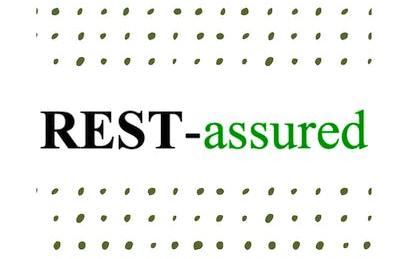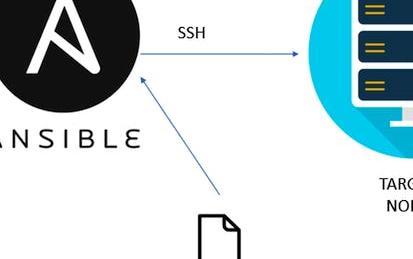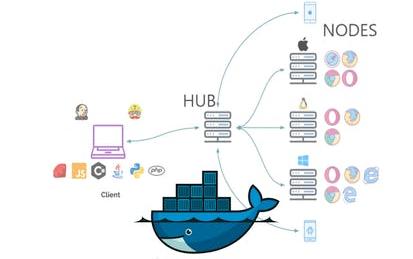

Our Courses

C Programming: Modular Programming and Memory Management - 3
Enhance your coding skills along your path to becoming a proficient C programmer with the essential concepts of functions and pointers. In this course you will be introduced to the concept of modular programming: that is, dividing up more complex tasks into manageable pieces. You will learn how to write your own functions (just like functions in mathematics for example).
-
Course by

-
 Self Paced
Self Paced
-
 10 hours
10 hours
-
 English
English

How to Create Multiple Automations using IFTTT
In this 1-hour long project-based course, you will learn how to - understand IFTTT - use already created applets for better automations - create automations for better business flows Note: This course works best for learners who are based in the North America region.
-
Course by

-
 Self Paced
Self Paced
-
 1 hour
1 hour
-
 English
English

Electrical Power Distribution
This is an application-oriented course explaining the various aspects of power distribution, indoor and outdoor equipment up to 33kV. The course adopts a cross-disciplinary approach to ensure that the learners understand site execution, testing and commissioning. Throughout the course, safety aspects have been emphasized in every area of work.
-
Course by

-
 Self Paced
Self Paced
-
 12 hours
12 hours
-
 English
English

Modeling and Debugging Embedded Systems
This course can also be taken for academic credit as ECEA 5387, part of CU Boulder’s Master of Science in Electrical Engineering degree. This is part 3 of the specialization.
-
Course by

-
 Self Paced
Self Paced
-
 8 hours
8 hours
-
 English
English

Data Manipulation in RPA
The Data Manipulation in RPA course will provide knowledge about Variables, Arguments, and Data Manipulation. It will also introduce you to Variables and Arguments, their types, and their application in automation projects. In the later part of the course, you will learn about data manipulation in Studio. You will also learn about the different methods and operations performed on different data types and their usage in automation projects. Building on each concept, there will be demonstration videos that will explain these operations and methods.
-
Course by

-
 Self Paced
Self Paced
-
 9 hours
9 hours
-
 English
English

Juniper Networks Automation Using Python and PyEZ
This course will introduce you to fundamental concepts of a programming language called Python. After introducing you to Python concepts, the course describes how to apply those concepts to network automation using Junos PyEZ, a free Python library from Juniper Networks. This course demonstrates using Python and Junos PyEZ to automate the management of Junos OS devices.
-
Course by

-
 Self Paced
Self Paced
-
 4 hours
4 hours
-
 English
English

Automation With Salt
Salt is an automation configuration management framework designed on the idea of executing commands remotely. This is open source software developed to automate the configuration of server systems. The course begins with the introduction to Automation with Salt followed by Salt Installation. A brief explanation about features of Salt using command-line tools and Matching Elements is provided in the course. The course also demonstrates the working of Jinja2 and Pillars in a detailed manner. This course provides 3 hours of training videos which are segmented into modules.
-
Course by

-
 Self Paced
Self Paced
-
 5 hours
5 hours
-
 English
English

Deploying Microservices to Kubernetes using Azure DevOps
Kubernetes is open-source, and its container orchestration benefits enable automation of various tasks such as deployment, management, and scaling of container-based applications. Presently, you can find various cloud-based applications using Kubernetes workloads. Since the Azure cloud provides ease of running Kubernetes alongside ease of scalability and management of microservices with higher availability, it is one of the foremost choices of all enterprises for DevOps transformation.
-
Course by

-
 Self Paced
Self Paced
-
 15 hours
15 hours
-
 English
English

Using APIs for Network Automation
This course will provide a solid foundation for understanding how APIs are utilized in network automation by discussing important topics such as data encoding formats, REST APIs, and the Python Requests library.
-
Course by

-
 Self Paced
Self Paced
-
 4 hours
4 hours
-
 English
English

UiPath Orchestrator and Capstone Projects
UiPath Orchestrator and Capstone Projects course will provide knowledge about Orchestrator and its capabilities. Further, the learning extends through understanding the Orchestrator user Interface, Contexts of Orchestrator and Assets and Queues in Orchestrator. The Capstone Projects will help you integrate and apply the knowledge gained from completing the RPA specialization. While working on the projects, you will apply critical thinking to solve challenging automation problems and develop skills to build robust automation.
-
Course by

-
 Self Paced
Self Paced
-
 6 hours
6 hours
-
 English
English

Mastering Ansible Automation
Learn the essentials to quickly master automation with Ansible! While this course is designed for learners with limited coding experience, it is helpful (though not required!) to have familiarity with Linux or Unix-like operating systems, the command line interface, and the basics of shell scripting. To allow for a truly hands-on, self-paced learning experience, this course is video-free. Assignments contain short explanations with images and runnable code examples with suggested edits to explore code examples further, building a deeper understanding by doing.
-
Course by

-
 Self Paced
Self Paced
-
 11 hours
11 hours
-
 English
English

Waits in Selenium Test Automation Tool
One of the biggest challenges QAs and Developers face in test automation is synchronizing application under test and test automation code.
-
Course by

-
 Self Paced
Self Paced
-
 2 hours
2 hours
-
 English
English

AWS: Task Automation and Network Integration
AWS:Task Automation and Network Integration is the second course of "Exam Prep ANS-C01: AWS Certified Advanced Networking Specialty" specialization. This ANS-C01 course will help in evaluating automation alternatives within AWS for network deployments. Learners will also have chance to configure network integration with application services. The course is divided into two modules and each module is further segmented by Lessons and Video Lectures. This course facilitates learners with approximately 3:00 Hours Video lectures that provide both Theory and Hands -On knowledge.
-
Course by

-
 Self Paced
Self Paced
-
 7 hours
7 hours
-
 English
English

Scheduling Selenium TestNG tests via Jenkins CI/CD tool
Selenium is one of the most widely used test automation tools for UI functional testing.
-
Course by

-
 Self Paced
Self Paced
-
 2 hours
2 hours
-
 English
English

Build an Automated Landing page using AI from Wix ADI
In this 1-hour long project-based course, you will learn how to design a lead generation landing page with a free ebook lead magnet to collect email addresses using Wix Artificial Design Intelligence. You will then use the Email Automation feature from Wix to send an automated email with an option to download the free ebook and a Call to Action to join a webinar where you as a marketer can then sell premium products. This lead generation strategy is highly effective with really high conversion rates if done right.
-
Course by

-
 Self Paced
Self Paced
-
 3 hours
3 hours
-
 English
English

C Programming: Advanced Data Types - 5
In this course you will define your own data types in C, and use the newly created types to more efficiently store and process your data. Many programming languages provide a number of built-in data types to store things such as integers, decimals, and characters in variables, but what if you wanted to store more complex data? Defining your own data types in C allows you to more efficiently store and process data such as a customer's name, age and other relevant data, all in one single variable!
-
Course by

-
 Self Paced
Self Paced
-
 8 hours
8 hours
-
 English
English

Building API Test Automation Framework Using Rest Assured
API stands for Application Programming Interface which helps two independent software to communicate with each other. When an application is built, the functionalities are built first as APIs and then integrated with the frontend layer (UI). Waiting for integration to find bugs in the application will add a lot of costs.
-
Course by

-
 Self Paced
Self Paced
-
 2 hours
2 hours
-
 English
English

API Testing with Karate Framework
Karate is an open-source framework for API Test automation that uses BDD style syntax, has a rich assertion library, built-in HTML reports. In this 2-hour long project-based course, you will learn -- 1. API testing basics and Karate framework 2. Sending GET, POST, PUT, PATCH and DELETE requests via Karate framework 3. Add assertions to write effective test scenarios via the Karate framework
-
Course by

-
 Self Paced
Self Paced
-
 4 hours
4 hours
-
 English
English

Automation Techniques in RPA
The Automation Techniques in RPA course will provide knowledge about Extraction and its Techniques, Screen Scraping, Data Scraping and PDF Extraction. In the later part of the course, you will gain knowledge about Workbook, Excel and Email Automation in Studio. You will also learn about activities for workbooks and excel automation along with Email protocols and related activities. Building on each concept, there will be demonstration videos that will explain these operations and methods.
-
Course by

-
 Self Paced
Self Paced
-
 10 hours
10 hours
-
 English
English

Designing the Future of Work
The workplace of tomorrow is an uncertain place. We live in a rapidly changing world, and design innovations such as artificial intelligence (AI), robotics, and big data are rapidly changing the fundamental nature of how we live and work. As these technologies continue to evolve at an exponential rate - it is becoming critical to understand their impact on contemporary work practices, and for businesses and employees to understand how to design a secure future amidst this disruption. What new, disruptive technologies are on the horizon? How will jobs change?
-
Course by

-
 Self Paced
Self Paced
-
 13 hours
13 hours
-
 English
English

Ansible Basics & Installing WordPress on LAMP with Playbooks
This guided-project introduces you to Ansible automation and configuration management, provisioning, deploying, and managing compute infrastructure with Ansible.
-
Course by

-
 Self Paced
Self Paced
-
 2 hours
2 hours
-
 English
English

Getting Started with Chef Cookbooks
Chef is a powerful automation platform that transforms infrastructure into code. Chef automates how infrastructure is configured, deployed, and managed across your network without worrying about its size. Cookbooks are fundamental working units of Chef, which consists of all the details related to working units, having the capability to modify configuration and the state of any system configured as a node on Chef infrastructure. Cookbooks help in configuring the infrastructure with the help of other components like recipes, templates, files etc.
-
Course by

-
 Self Paced
Self Paced
-
 7 hours
7 hours
-
 English
English

Selenium Test Execution On Docker Containers
“Selenium automates browsers, that’s it. What you do with that power is up to you.” Selenium is the most widely used UI automation tool to test web applications. Docker helps developers build lightweight and portable software containers that simplify application development, testing, and deployment. In this project, we will learn why and how to execute Selenium tests on Docker containers. By the end of this project, you will be able to execute Selenium tests sequentially or parallelly on multiple browsers deployed on Docker containers.
-
Course by

-
 Self Paced
Self Paced
-
 2 hours
2 hours
-
 English
English

AI Workflow: Business Priorities and Data Ingestion
This is the first course of a six part specialization. You are STRONGLY encouraged to complete these courses in order as they are not individual independent courses, but part of a workflow where each course builds on the previous ones. This first course in the IBM AI Enterprise Workflow Certification specialization introduces you to the scope of the specialization and prerequisites. Specifically, the courses in this specialization are meant for practicing data scientists who are knowledgeable about probability, statistics, linear algebra, and Python tooling for data science and ma
-
Course by

-
 Self Paced
Self Paced
-
 8 hours
8 hours
-
 English
English

Digital Fashion Mindset
Digital Fashion Mindset is a collaboration between Parsons School of Design at The New School and The Digital Fashion Group Academy.
This course teaches you to recognize the significance of the digital revolution in historical and present-day contexts and how it relates to the fashion industry’s ability to use technology creatively and collaboratively.
-
Course by

-
 Self Paced
Self Paced
-
 17 hours
17 hours
-
 English
English



